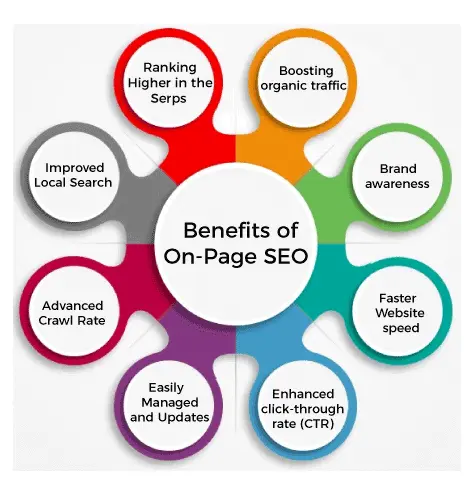In today’s digital age, having a robust online presence is no longer optional for real estate agents and firms—it’s a necessity. With potential buyers and sellers increasingly turning to the internet for their property needs, mastering Search Engine Optimization (SEO) is vital. At SS TECH SERVICES, we understand the importance of an effective online strategy, and in this guide, we will walk you through the basics of SEO tailored specifically for real estate websites. This knowledge will help you enhance your visibility and attract more clients.
What is SEO and Why Does It Matter?
Understanding SEO
SEO is the practice of optimizing your website to rank higher in search engine results pages (SERPs). Higher rankings translate to more visibility, more traffic, and ultimately, more leads. For real estate professionals, this means reaching prospective buyers and sellers where they are searching: online.

The Importance of SEO in Real Estate
- Increased Visibility: An optimized site appears at the top of search results, making it easier for potential clients to discover your listings.
- Targeted Traffic: SEO attracts users actively searching for real estate services, increasing the chances of conversion.
- Cost-Effective: Unlike paid ads, organic traffic driven by SEO can lead to sustainable growth over time.
Essential Components of SEO for Real Estate Websites
Keyword Research: The Foundation of SEO
Keyword research is the cornerstone of your SEO strategy. It involves identifying the terms and phrases potential clients are using to search for real estate services.
Tools for Effective Keyword Research
Google Keyword Planner: A reliable tool for finding keyword ideas and search volume data.
Ahrefs: Offers insights into keyword difficulty and competitor performance.
SEMrush: Provides comprehensive keyword analysis and tracking.
Types of Keywords to Focus On
Short-tail Keywords: Broad terms like “real estate” or “homes for sale.” While they have high search volumes, they are also highly competitive.
Long-tail Keywords: More specific phrases, such as “affordable condos in [City]” or “first-time homebuyer guide.” These keywords typically have lower competition and higher conversion potential.
On-Page SEO: Optimizing Your Pages
On-page SEO refers to the practice of optimizing individual pages on your website. This includes various elements that affect your site’s ranking.

Key On-Page Elements to Optimize
Title Tags: Craft unique titles for each page, incorporating your target keywords. Aim for 50-60 characters.
Meta Descriptions: Write concise and compelling descriptions that summarize your page’s content. Keep them under 155 characters and include relevant keywords.
Header Tags: Use H1, H2, and H3 tags to structure your content. The H1 tag should encapsulate your primary keyword and clearly indicate the page’s topic.
Quality Content: Provide valuable, relevant content that addresses the needs and interests of your audience. Consider including market insights, buying tips, and local neighborhood guides.
Image Optimization
High-quality images are crucial for real estate websites. To optimize images:
- Use descriptive file names (e.g., “modern-home-in-city.jpg”).
- Compress images to enhance load times.
- Include alt text that describes the image and incorporates relevant keywords.
Local SEO: Connecting with Your Community
Local SEO is particularly important in the real estate industry, as it helps you connect with potential clients in your area.

Optimize Your Google My Business Profile
Claim and optimize your Google My Business (GMB) listing. Ensure it includes:
- Accurate business name, address, and phone number (NAP).
- A clear description of your services.
- Photos of your properties and office.
Local Keywords
Incorporate local keywords throughout your website. For example, use phrases like “best real estate agent in [City]” or “homes for sale in [Neighborhood].”
Local Listings and Citations
Ensure your business is listed in local directories such as Yelp, Zillow, and local real estate platforms. Consistent NAP information across these sites helps improve your local rankings.
Content Marketing: Engaging Your Audience
Creating valuable content is key to attracting and retaining visitors. Consider these strategies:

Informative Blog Posts
Write blog posts that address common questions and concerns in real estate, such as:
- “Tips for First-Time Homebuyers”
- “How to Sell Your Home Quickly”
- “Market Trends in Noida”
Neighborhood Guides
Develop comprehensive guides for neighborhoods in your area. Include information on schools, amenities, local attractions, and real estate trends.
Video Content
Engage users with video content. Consider creating virtual property tours, client testimonials, or educational videos that guide viewers through the buying or selling process.
Technical SEO: Behind the Scenes
Technical SEO ensures that search engines can effectively crawl and index your website. Key components include:

Mobile Optimization
With many users searching for properties on mobile devices, ensure your website is mobile-friendly. Responsive design is crucial for providing a seamless experience across all devices.
Site Speed
Page load speed impacts user experience and SEO rankings. Use tools like Google PageSpeed Insights to identify areas for improvement. Optimize images and consider using caching plugins if you’re using WordPress.
SSL Certificate
Having an SSL certificate secures your website and builds trust. It’s essential for real estate transactions, as users want assurance that their data is safe.
Backlink Building: Boosting Authority
Backlinks are links from other websites to yours, playing a significant role in improving your domain authority.
Strategies for Earning Backlinks
Guest Blogging: Contribute to reputable real estate blogs or local business sites.
Local Collaborations: Partner with local businesses and request backlinks in return.
Social Media Engagement: Share your content on social media platforms to increase visibility and potential backlinks.
Analytics and Monitoring: Measure Your Success
Tracking your SEO efforts is essential for understanding what works and what doesn’t.
Utilize Google Analytics
Google Analytics provides insights into website traffic, user behavior, and conversion rates. Focus on metrics like bounce rate, session duration, and user demographics.
Monitor with Google Search Console
Google Search Console helps you track your website’s performance in Google search results. Use it to identify indexing issues, monitor keyword performance, and understand how users discover your site.
Conclusion
Implementing a solid SEO strategy for your real estate website is essential for standing out in a competitive market. By focusing on keyword research, on-page optimization, local SEO, content marketing, technical SEO, backlink building, and analytics, you can significantly enhance your online presence and attract more clients.
At SS TECH SERVICES, we believe that investing in SEO is key to establishing your real estate website as a trusted resource for buyers and sellers alike. SEO is an ongoing journey, so stay informed about the latest trends and algorithm changes. With dedication and the right strategies, you can achieve long-term success in the digital real estate landscape. Start today, and watch your business thrive!